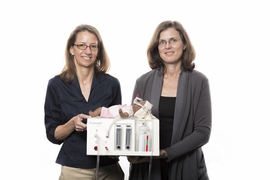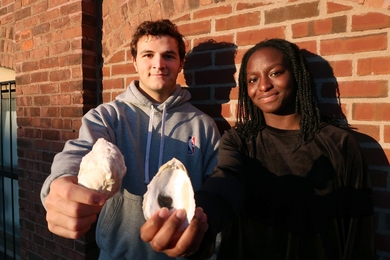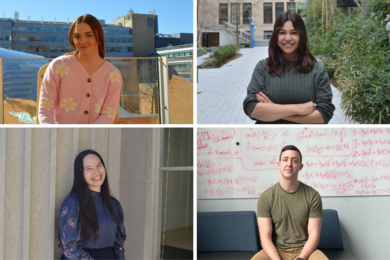Fostering a corps of global problem solvers
Richards-Kortum and Oden's multidisciplinary educational program is changing the way low-cost health solutions are delivered to the developing world by providing undergraduate students with a roadmap to become inventors and innovators of life-saving technologies. Through BTB, Richards-Kortum and Oden work with their students and clinical partners around the world — such as those at the Queen Elizabeth Central Hospital in Blantyre, Malawi — to identify health challenges and design solutions. After building and testing prototypes, they team with the private and public sectors to put their inventions to use. BTB is supported by the Howard Hughes Medical Institute.
A fundamental component of BTB is an eight-week international implementation internship program in Africa and Latin America. Through their experiences in the field, BTB students are able to overcome unanticipated challenges and adapt their inventions accordingly under the guidance of trained clinicians and on-site mentors. On a broader scale, the internships improve undergraduate students' understanding of global health challenges and help inspire new ideas for health innovations for resource-poor communities. Ninety percent of BTB summer interns incorporate global health activities into their careers.
"Rebecca Richards-Kortum and Maria Oden provide an ideal example of how our impact can be multiplied when we invest the time to excite and empower our youth to invent," said Joshua Schuler, executive director of the Lemelson-MIT Program. "Their students are committed to taking technologies created in the classroom and putting them into the hands of those in need to make significant and sustainable impact, demonstrating how invention can improve lives."







